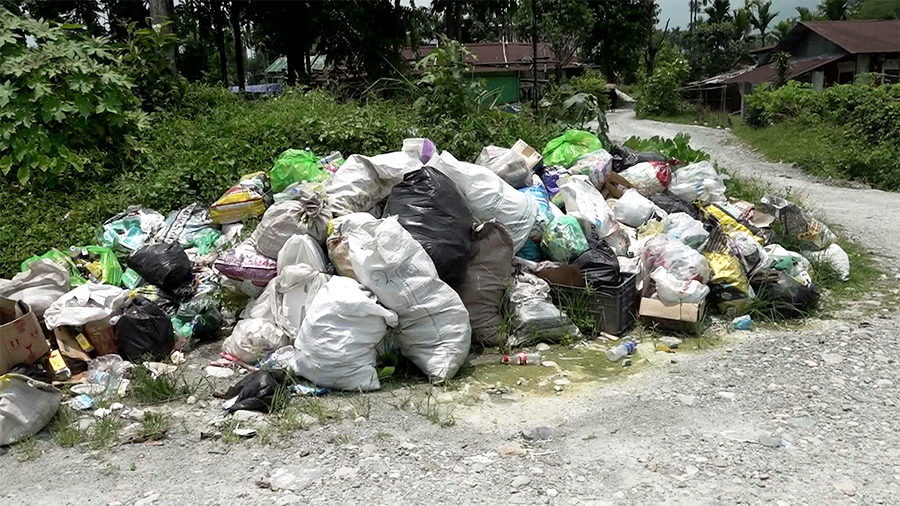
The increasing population in Gelephu Gewog in Sarpang has led to growing waste issues in the locality. In the absence of a proper dumping site, residents have resorted to disposing of waste in open areas. However, there is good news as the Sarpang district administration will be providing a garbage collection vehicle to collect waste starting this week.
During a recent meeting with the Gewog officials, it was decided that starting this Thursday, the garbage collection vehicle will visit the Chiwogs of Gelephu Gewog.
As per the decision, residents are required to bring their waste to the designated waste collection points.
“The previous waste disposal sites were initiated without carrying out a proper study, leading to the dismantling of all the facilities. The district administration is now providing us with a garbage collection vehicle, which will start collecting waste every Thursday. We held discussions with the community regarding the waste collection centre,” said Prem Prasad Katel, Gelephu Gup.
With such an initiative from the district and Gewog administrations, the residents are hopeful that they can maintain cleanliness in their surroundings.
Previously, waste was dumped in open spaces or burned, causing pollution.
“The garbage collection vehicle will collect waste every Thursday. I am happy with this initiative. Upon the arrival of the vehicle, we will dispose of the waste in it. If everyone follows it, the waste issue is expected to be solved,” said Nagphay, a resident.
“With the garbage collection vehicle, we can maintain cleanliness and improve sanitation. We can collect waste in plastic bags and dispose of it when the vehicle arrives. There is a possibility of the Gewog becoming clean and green,” said Rajesh Sangrola, another resident.
Previously, there were three small waste disposal facilities at Lekithang, Pelrithang Khatoed, and near the Gelephu Gewog office.
However, these facilities were dismantled last year as they were not enough to accommodate the increasing waste.
Gelephu Gewog has a population of around 5,000.
Karma Wangdi, Sarpang
Edited by Tshering Zam








